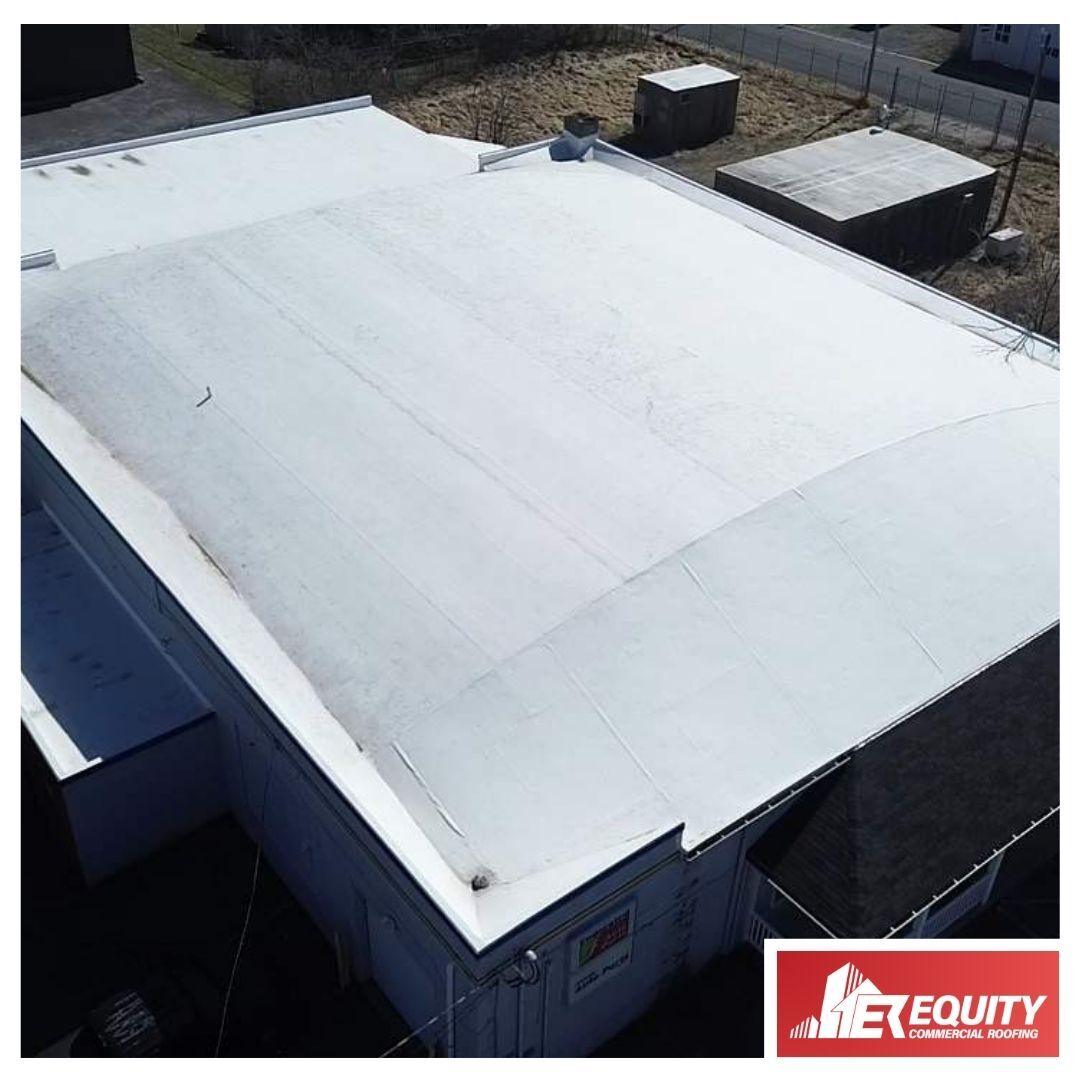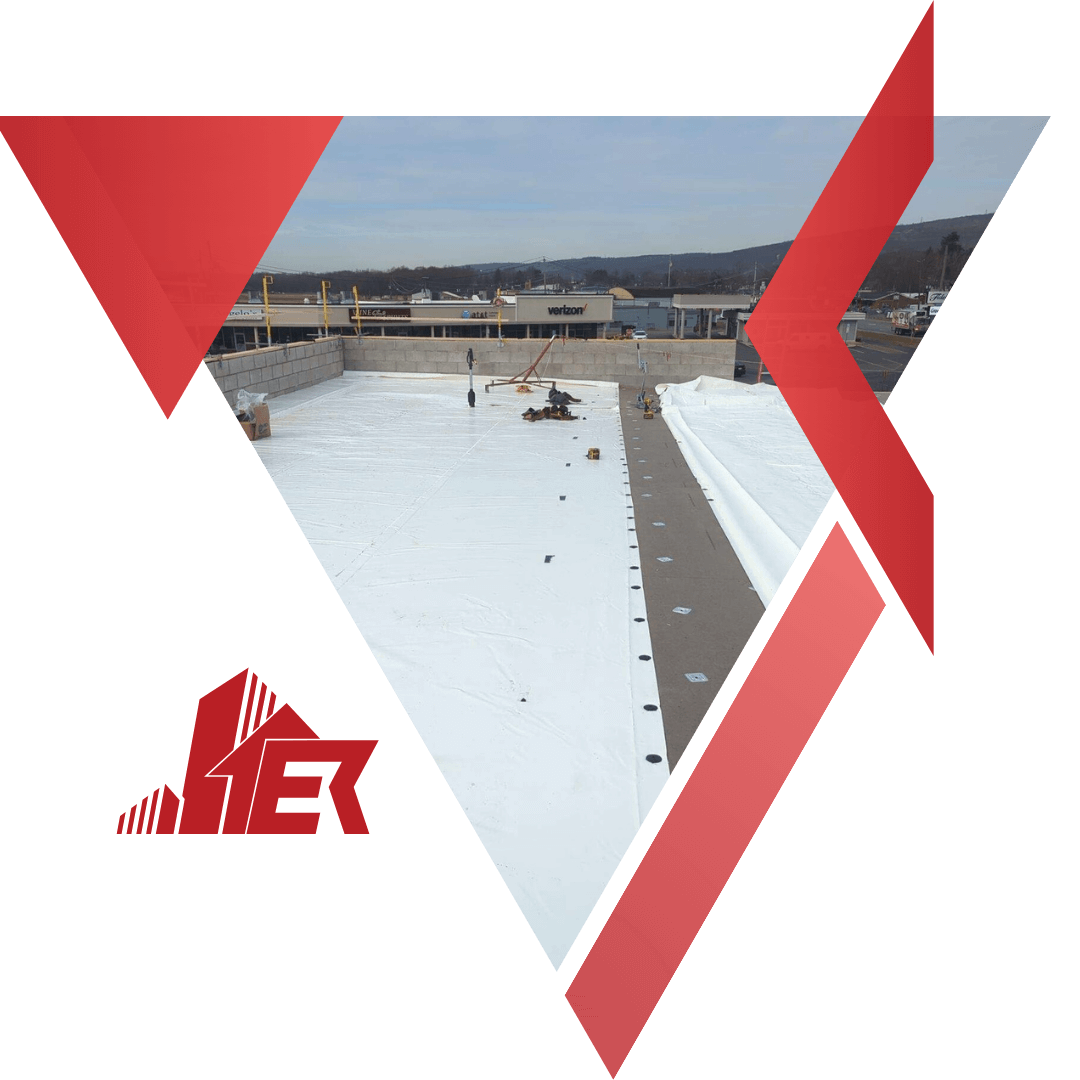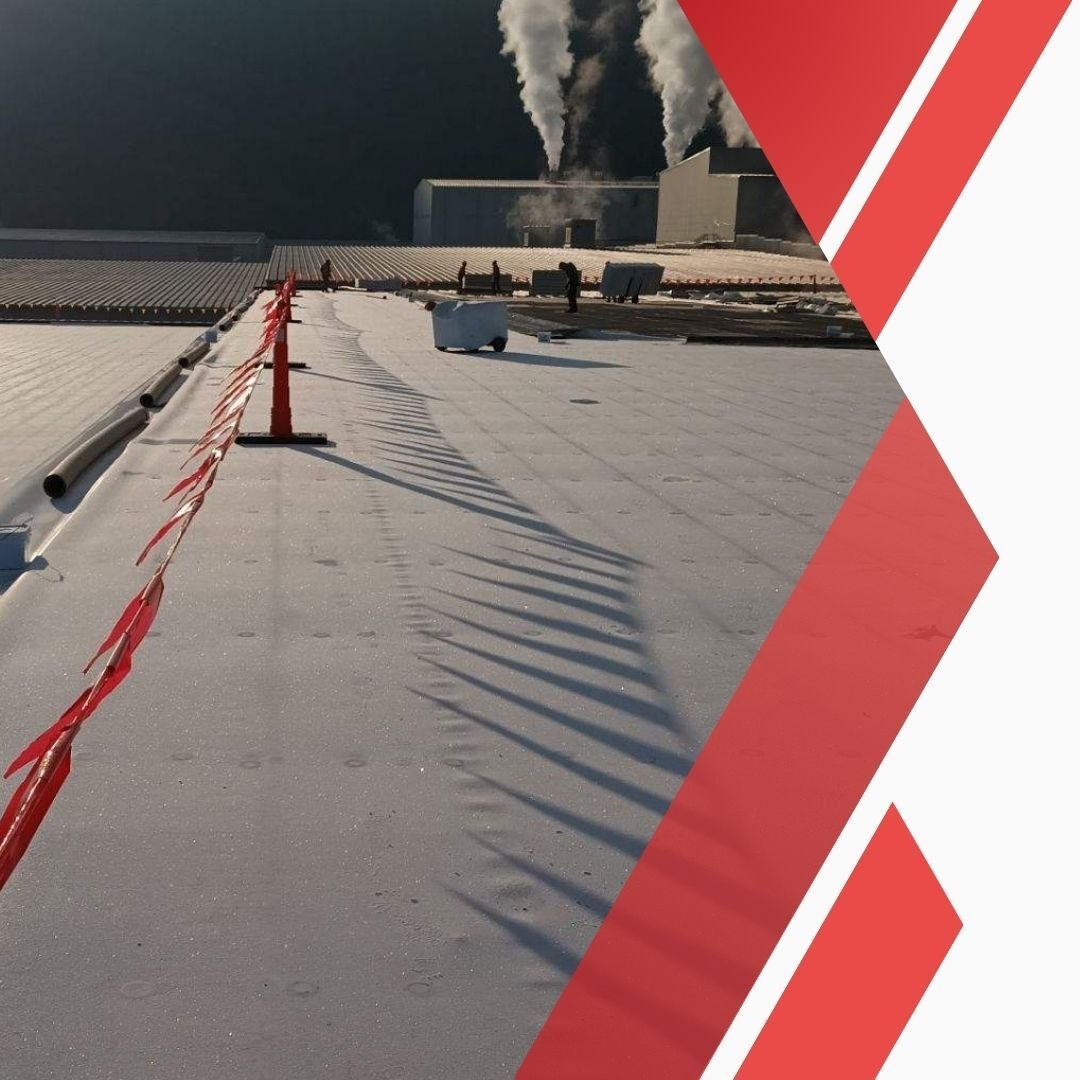PVC Roofing Systems for Chemical-Resistant, Low-Maintenance Performance
PVC (Polyvinyl Chloride) roofing is a durable single-ply system ideal for commercial roofs exposed to grease, chemicals, or extreme heat. Known for its hot-air welded seams and energy-efficient white surface, PVC is ideal for facilities with rooftop equipment or strict safety requirements. Equity Commercial Roofing installs PVC systems across Central Pennsylvania using certified methods that meet manufacturer standards and code compliance.
Why PVC Is the Right Fit for High-Exposure Commercial Roofs
PVC roofing offers strong protection in demanding environments. It resists grease, chemicals, and fire while providing leak-resistant seams and excellent reflectivity. This makes it ideal for high-use rooftops where safety, sanitation, and energy savings matter most.
Key Benefits of PVC Roofing
✔ Excellent resistance to chemicals, grease, and fire
✔ Hot-air welded seams for superior leak protection
waterproofing
✔ High reflectivity for energy savings
✔ Lightweight and adaptable to complex layouts
✔ Ideal for facilities with rooftop equipment or ventilation systems
Is PVC Roofing a Good Fit for Your Building?
PVC is best suited for buildings with frequent rooftop exposure to grease, chemicals, or heat, or where strong waterproofing and energy efficiency are critical
Kitchens, labs, and manufacturing with chemical exhaust
Pharmaceutical or medical buildings with hygiene standards
Facilities needing weld-sealed waterproofing
Properties requiring fire-rated roofing systems
Our PVC Installation Process
We use manufacturer-approved materials and installation methods to ensure long-term performance and warranty protection.
-
Step 1: Site Review and Planning
Evaluate substrate condition and drainage needs
Recommend attachment and insulation strategy -
Step 2: Insulation and PVC Membrane Installation
Install polyiso or appropriate insulation
Fully adhere or mechanically fasten the PVC membrane -
Step 3: Seam Welding and Detailing
Weld seams using hot-air equipment
Flash HVAC curbs, penetrations, and perimeter edges -
Step 4: Final Inspection and Warranty Registration
Inspect seam welds, flashings, and drainage
Register warranty and compile completion documentation
Contact Our Team to Schedule a Repair Today.

What Does PVC Roofing Cost?
PVC roof pricing depends on membrane thickness, installation complexity, and insulation needs. Below are typical Central PA price ranges.
|
Estimated Cost per sq. ft. $7.00 – $9.00 |
Notes Includes insulation, membrane, and fasteners |
|
Estimated Cost per sq. ft. $9.00 – $11.50 |
Notes Adds slope for water drainage |
|
Estimated Cost per sq. ft. $10.00 – $13.00 |
Notes Includes full removal of old roofing |
PVC vs. Other Flat Roofing Systems
PVC is known for its chemical resistance and energy efficiency, but how does it compare to other commercial roofing options?
PVC
PVC stands out for its high resistance to chemicals and grease, making it ideal for restaurants, labs, and facilities with rooftop exhaust. It also offers strong energy efficiency, a moderate maintenance profile, and typically lasts 20–30 years.
Central PA's Certified PVC Roofing Experts
Equity Commercial Roofing is trusted across Central Pennsylvania for safe, code-compliant PVC roofing installations. With certified crews and OSHA 30-supervised projects, we handle chemical-intensive facilities, food-service buildings, and large flat roof systems with precision and care. From high-traffic retail roofs to chemical-heavy manufacturing facilities, we deliver proven results.
✔ Manufacturer-certified crews with experience in chemical-resistant systems
✔ Supervised by OSHA 30-trained leads to ensure weld safety and jobsite compliance
✔ Longstanding partnerships with manufacturers
✔ Clear documentation for inspections and warranty
✔ Experience across food, healthcare, and industrial buildings


PVC Roofing FAQs
Common questions about PVC commercial roofs, tailored to the needs of Central Pennsylvania properties.
-
How long does a PVC roof typically last?
PVC roofs are built to last between 20 to 30 years with proper installation and routine maintenance. Their welded seams and chemical resistance help extend the system’s lifespan even in demanding environments.
-
Is PVC suitable for buildings with grease or chemical exposure?
Yes. PVC is one of the best roofing options for facilities like restaurants, factories, or laboratories. It resists grease, oil, chemicals, and acids, making it ideal for roofs with exhaust vents or regular chemical contact.
-
Can PVC be installed during winter or cold weather months?
PVC can be installed in colder conditions, but it requires experienced crews and strict adherence to manufacturer protocols to ensure weld quality. At Equity Roofing, we take seasonal factors into account when scheduling cold-weather installations.
-
Does PVC help lower energy costs?
Yes. PVC’s white reflective surface meets “cool roof” standards, reducing heat absorption and lowering interior cooling costs during warm months. This makes it a strong choice for energy-conscious building owners.
-
What kind of maintenance does a PVC roof need?
We recommend semiannual inspections, especially in spring and fall. Maintenance includes removing debris, inspecting seams and flashings, and checking for membrane wear. Welded seams should be reviewed regularly for long-term performance.
-
Can you install PVC over an existing roof system?
In many cases, yes. If the existing roof is dry, stable, and code-compliant, PVC can often be installed as a recovery system. Our team will evaluate your roof to determine the safest and most cost-effective approach.
Still have questions? Speak with a certified PVC roofing expert at Equity Roofing.
